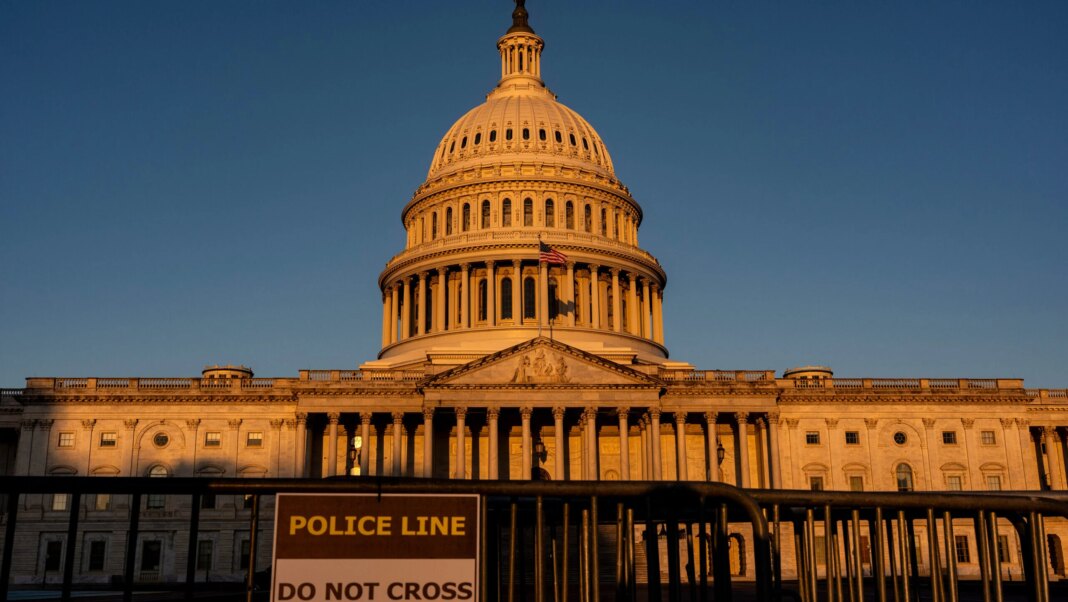Navigating the Health Care Debate Amid Government Shutdown
The ongoing debate over health care in Congress has become a critical issue, especially as Democrats advocate for extending subsidies in exchange for their votes to reopen the shuttered U.S. government. This complex situation illustrates the intersection of health care policy and government operations, revealing the deeply entrenched divisions within Congress.
The Stakes of Subsidy Extensions
Democrats firmly believe that health care is a fundamental concern for many Americans. The current call to extend subsidies—initially implemented during the COVID-19 pandemic in 2021—aims to support millions of individuals who rely on Affordable Care Act (ACA) marketplaces for their insurance needs. As the new year approaches, millions are poised to receive notification of rising premiums, amplifying the urgency of this debate.
However, the Republican stance on extending these subsidies is far from unanimous. While some members recognize the need for continuity, a significant faction vehemently opposes any extension, viewing the situation as an opportunity to advocate for cuts to the ACA. This divide underscores the intractability of the health care issue within Congress.
Republican Perspectives: Divisions and Dilemmas
The letter penned by Texas Rep. Chip Roy encapsulates the dilemma many Republicans are wrestling with. He stressed the importance of holding firm against what he perceives as “failed healthcare policies” and cautioned against showing weakness in negotiations. This sentiment resonates with some GOP lawmakers who argue that the ACA, often derided as Obamacare, is fundamentally flawed. Despite their ongoing criticism, the law remains popular among millions, which complicates the Republican strategy.
With 24 million individuals now enrolled in ACA plans—largely thanks to the financial assistance provided through subsidies—congressional support for these programs is a double-edged sword for Republicans. They have continuously sought to challenge the ACA but have struggled to implement significant alterations without facing public backlash.
Trump’s Influence and Party Dynamics
The looming government shutdown, now in its seventh day, adds pressure to the negotiations. Former President Donald Trump’s recent comments have further complicated the dynamics, as he indicated a willingness to negotiate but only under the condition that the government reopens first. This stance leaves many Republican leaders in a difficult position as they attempt to reconcile internal party disagreements while also addressing public concerns about rising health care costs.
Senate Majority Leader John Thune has hinted that Republican support for extending subsidies could be feasible if Democrats agree to reopen the government. He emphasizes that the eventual resolution may hinge on Trump’s involvement and leadership.
The Bipartisan Stalemate and Grassroots Efforts
While leaders remain at odds, some rank-and-file senators are exploring bipartisan solutions. Figures like Sen. Mike Rounds of South Dakota and Senate Appropriations Committee Chairwoman Susan Collins have proposed ideas such as extending subsidies for a year, albeit with reforms. However, the responses from their party members have often stalled the progress, showcasing the limitations of bipartisan efforts in a sharply divided Congress.
Many Democrats firmly believe they hold the public’s support on this issue, claiming that constituents in Republican-dominated regions are feeling the pinch from potential premium increases. Senate Majority Leader Chuck Schumer has pointed out that public sentiment weighs heavily against the GOP’s handling of the shutdown, highlighting the potential political ramifications for Republican leaders.
Diverging Opinions Within the GOP
Despite the strong resistance to the ACA from certain factions, not all Republicans are against extending subsidies. Figures like Sen. Josh Hawley of Missouri recognize the urgency of the situation and express a willingness to consider reforms, emphasizing the need for timely action to address rising costs. Even far-right members, such as Rep. Marjorie Taylor Greene, have indicated a willingness to support an extension, primarily motivated by the impacts on their constituents, including rising premiums for their own family members.
This divergence within the Republican party highlights the nuanced landscape of health care politics. While the leadership may take a strong opposition stance, the concerns and needs of their constituents introduce a counterbalance that complicates straightforward opposition.
The Impasse Continues
The health care debate interwoven with the government shutdown has positioned lawmakers at an impasse, with various stakeholders implementing strategies to navigate the complexities. Democrats seem inclined to leverage public sentiment in their favor, while many Republicans remain focused on overhauling the ACA. The evolving discussion points to how health care remains an essential and polarizing issue in American politics—a reality that will likely shape negotiations for years to come.
As the situation continues to unfold, both parties will need to reassess their strategies and consider the implications of their decisions on health care policy and public sentiment amid a critical government crisis.



